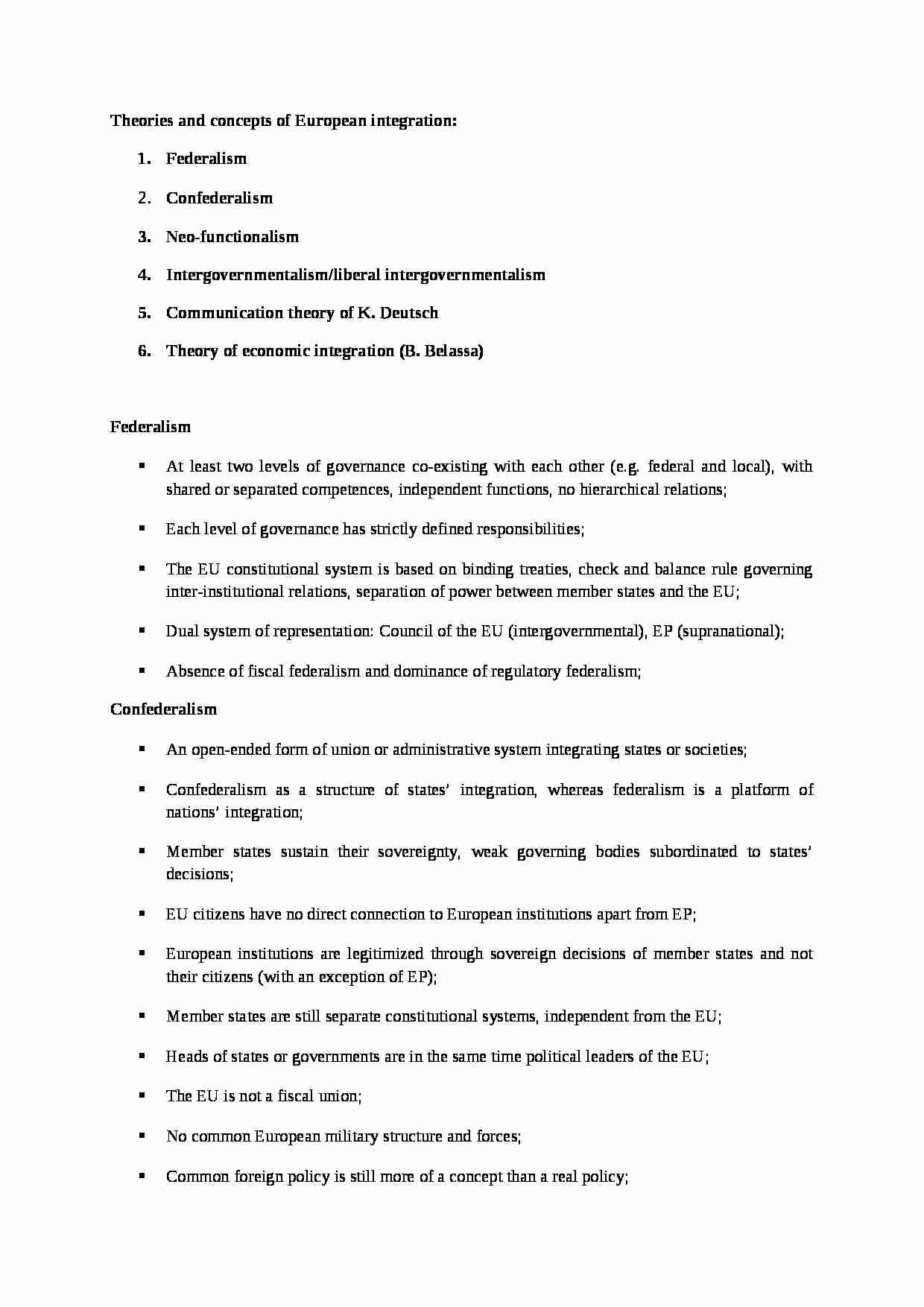To tylko jedna z 3 stron tej notatki. Zaloguj się aby zobaczyć ten dokument.
Zobacz
całą notatkę



Theories and concepts of European integration: Federalism
Confederalism Neo-functionalism
Intergovernmentalism/liberal intergovernmentalism Communication theory of K. Deutsch
Theory of economic integration (B. Belassa) Federalism At least two levels of governance co-existing with each other (e.g. federal and local), with shared or separated competences, independent functions, no hierarchical relations; Each level of governance has strictly defined responsibilities; The EU constitutional system is based on binding treaties, check and balance rule governing inter-institutional relations, separation of power between member states and the EU;
Dual system of representation: Council of the EU (intergovernmental), EP (supranational);
Absence of fiscal federalism and dominance of regulatory federalism; Confederalism An open-ended form of union or administrative system integrating states or societies;
Confederalism as a structure of states' integration, whereas federalism is a platform of nations' integration;
Member states sustain their sovereignty, weak governing bodies subordinated to states' decisions;
EU citizens have no direct connection to European institutions apart from EP;
European institutions are legitimized through sovereign decisions of member states and not their citizens (with an exception of EP);
Member states are still separate constitutional systems, independent from the EU; Heads of states or governments are in the same time political leaders of the EU;
The EU is not a fiscal union;
No common European military structure and forces;
Common foreign policy is still more of a concept than a real policy;
National identity prevail over European identity; Neo-functionalism It is preferable to begin with modest sectoral integration which will lead to broader and more ambitious targets;
Integration step by step;
Leaving grande politique and starting from the bottom;
The process of functional spill-over, in which initial decisions to start up integration in a very narrow field puts pressure to extend cooperation and the authority of governing institutions into new areas; The role of international organizations, interests groups cooperation with them in order to manage the integration process;
Crucial role of supranational bodies such as EC;
Such sectoral integration would become self-sustaining, leading to the creation of a new political entity;
Decision-making based on QMV;
Intergovernmentalism/liberal intergovernmentalism
(…)
… intergovernmentalism States will abstain and resist transferring their sovereignty to Brussels;
The decisive power still belongs to member states, not to international institutions, which should be perceived as a product of inter-state common decision;
The priority of states policy to aggregate the interests of their domestic constituencies, articulate their national preferences;
The strongest wins/takes all…
... zobacz całą notatkę






Komentarze użytkowników (0)